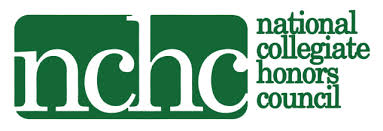Owning the Numbers: Comprehending Statistics
Mathematics in the World - HNRS 2221
Instructor(s): Carmen Sorge
Course Description
Statistical Thinking will one day be as necessary for efficient citizenship as the ability to read and write.- H.G. Wells
That day is now. Have you ever wondered why first the newspaper tells you that coffee prevents cancer, and the next day the headlines proclaim coffee will kill you? Are you aware that some stock fund statistics are technically true, but presented in a way designed to manipulate you? When a doctor tells you that a test for a disease is 99 percent accurate (and you just tested positive) what questions should you ask?
You may want to do research in the future, or maybe you do not, but you still need to read research. But what if you are never planning on looking at research again after you get out of college? You still need statistics. You need it for making medical decisions, investment decisions, political choices and many other everyday issues. If you do not understand statistics, you are at the mercy of those who do.
You may have taken a statistics class (or heard of one) that was basically a math class, but with statistics problems.This is not a class like that. You need, at most, Algebra 1 skills. This class is not about math. This class is about understanding how to interpret and use statistics as a powerful tool, both professionally and in your everyday life.
This course is designed to equip you with the statistical tools and knowledge to interpret and analytically analyze data. We will cover graphing techniques for presenting data, data sampling techniques, descriptive techniques, confidence intervals, regression toward the mean and the central limit theorem, basic probability, estimation and tests of significance as well as other topics. Mastering this material will provide you with the ability to interpret statistics related to public policy, education, business, and the social, health, and physical sciences. You will understand that statistics provides useful information for decision making but will also learn to recognize when the data is being manipulated in order to confuse or obscure the truth.
Understanding statistics allows you to make rational decisions in your own life and to think critically about potential outcomes. If you have taken the equivalent of College Algebra (Math 121) you certainly have the math skills for this class. If you have not taken an algebra class, please contact me before signing up.
*Please note that HNRS 2221 (3 credit hours) satisfies the Mathematics and Statistics category of the UNM General Education requirements, but it does not serve as an official prerequisite to other math classes and will not satisfy specific statistics requirements for major or minor programs without the direct approval of that program. Please contact your major or minor advisor if you have any questions about their statistics requirements.
Texts
Required texts will include “Naked Statistics: stripping the dread from data” by Charles Wheelan "What is a p-value anyway? 34 Stories to Help You Actually Understand Statistics by Andrew J. Vickers"
We will also be reading provided selections from “Damned Lies and Statistics”by Joal Best and “The Drunkard’s Walk: How Randomness Rules our Lives” by Leonard Mlodinow as well as selections from other books, current journals and media. These will be available online.
Requirements
Assignments include hands on data collection in the classroom and writing up mini labs using the data. You will have a short reflection due on the assigned reading which we will discuss in class.
Some of these assignments will include collecting, interpreting and presenting of your own data. You will write two papers.
About the Instructor(s): Carmen Sorge
I have taught both physics and mathematics from middle school level through college. I have a Ph.D in Educational Psychology, a M.S. in Science Education and a B.S. in Physics. But what should really matter to you is that I have experience in making science and math useful, exciting and interesting.
I have been teaching for thirty plus years, and through that time have come to realize that the content matters but the love of learning is what will remain many years later. I aim to install a love (or at least tolerance) of statistics into your brain.
In this class we will cover many topics in statistics, when you finish I hope for you to have, not just a better understanding of statistics, but an appreciation for how statistics is part of everyday life. Knowing statistics saves you money and grief.



Social Media
For news, information, prizes and more fun stuff follow us on our social media!
Honors College Resources